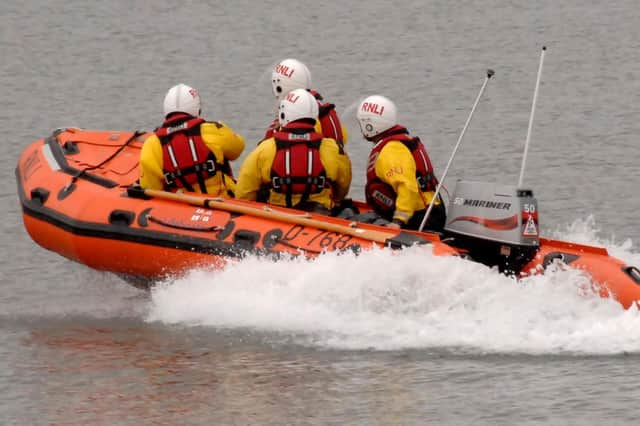Annual Swim Safe launches as new data reveals children account for more than a third of RNLI beach lifeguard rescues during summer


The latest statistics show that more than a third of those requiring help were aged seven to 14 – up by almost 600 (9%) on the year before - with the charity’s beach lifeguards saving the lives of 25 children.
To help keep children safe at the coast, the RNLI and Swim England are running free ‘Swim Safe’ sessions, one of which is at Scarborough North Bay.
Advertisement
Hide AdAdvertisement
Hide AdSince Swim Safe was established in 2013, more than 160,000 children have been taught vital water safety skills.
James Woodhouse of the RNLI’s Water Safety team said: “With these latest figures showing more than a third of those requiring lifeguard assistance were children, it demonstrates why it is vitally important for children to know how to stay safe in and near the water. By educating them about water safety from a young age, together we can help reduce the number of incidents involving open water.
”As we celebrate Swim Safe 10 years on, it’s incredible to know that so many children have taken part and hopefully the knowledge they have gained, has helped to keep them, their family members and friends safe.”
The free sessions teach children aged seven – 14, who can swim 25metres unaided, how to stay safe in and around open water and what to do if they, or someone else, gets into difficulty - including how to Float to live.
Advertisement
Hide AdAdvertisement
Hide AdJames said: “Float to live is a simple technique where you tilt your head back with ears submerged and try to relax and control your breathing. Use your hands to help you stay afloat and then call for help or swim to safety if you can – this technique is proven to save lives.”
The 45-minute sessions are run by trained instructors during the summer at outdoor water locations including beaches and inland sites plus at water sports activity centres, other local providers, and some Royal Yachting Association centres (RYA). The RYA is the UK’s national governing body for sailing, powerboating, and windsurfing.
Ashley Jones, Water Safety and Drowning Prevention Manager for Swim England, said: “We’re pleased to be able to partner with the RNLI again to facilitate free Swim Safe sessions this summer at a variety of coastal and inland locations around the UK run by our local partners.
“We want children and their parents to enjoy themselves around water but also to think about their own safety and know what to do in an emergency.”
Advertisement
Hide AdAdvertisement
Hide AdMother-of-three, Amy Donaldson said: “I saw Swim Safe advertised and thought I want my children to be safe in the sea and what a great idea this would be for my own children.
"I would say to other parents, definitely bring the kids down to do it. What they’ve learnt they will remember and will help keep them safe.”
Daughter Isabelle, 11, said: “I really liked learning about floating and all the different signals to do to the lifeguards. I learnt lots and it has built up my confidence to go in the sea. If anything did happen, I know now what to do.”
The RNLI’s key water safety advice for seven-14 year-olds is to stop and think, always swim in a safe place, stay together and always swim with an adult, younger children should always be within arms-reach.
Advertisement
Hide AdAdvertisement
Hide AdFloat to Live by tilting your head back with ears submerged and try to relax and control your breathing. Use your hands to help you stay afloat and then call for help or swim to safety if you can.
Call 999 in an emergency and ask for the Coastguard.